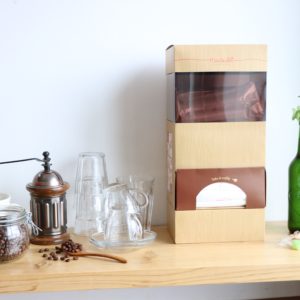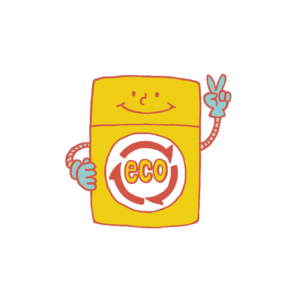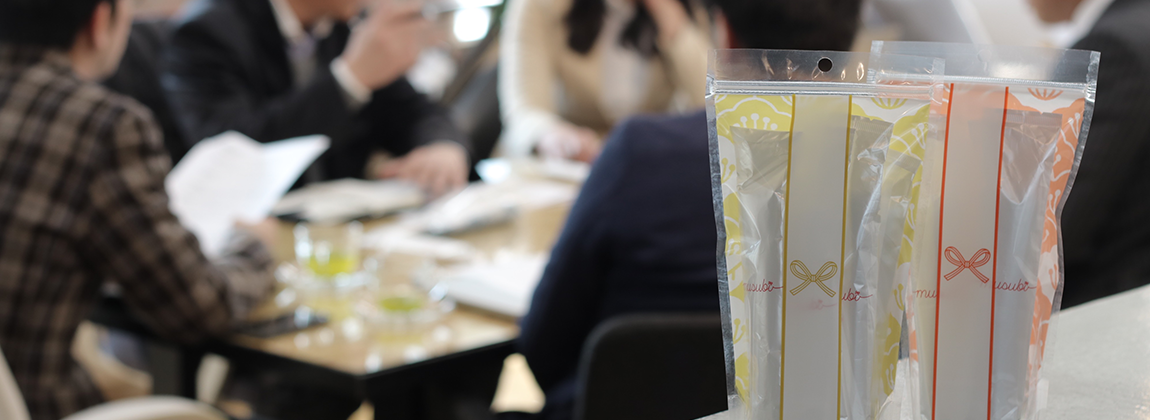
It's not a gift, but it's "SOSHINA".
This website explains :
1. How to use “musubi” ( & how awesome it is! )
2. What “musubi” means & why we should all care.
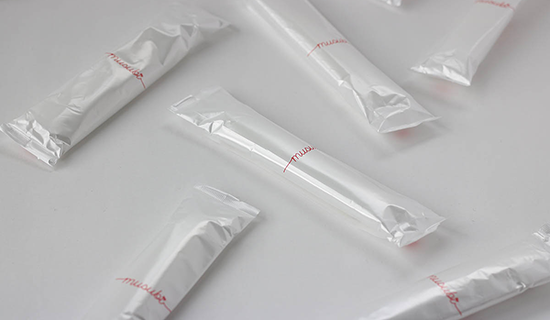
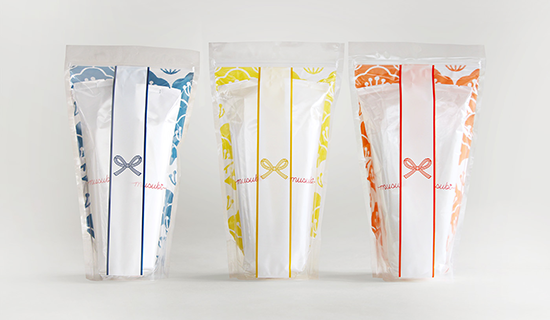
What is “this thing” I just received?
High quality, good-looking, super practical and convenient disposable hand towel is what it is.
A wet hand towel usually offered in restaurants or bars in Japan is called “oshibori”. Oshibori has a long history, going as far back as 1,300 years ago. It even appears in the famous Japanese classic literature “The Tale of Genji”, when nobles offered it to welcome their guests at home.
This hospitality culture is still intact to this day. However, mass-produced disposable paper towels took over the cloth hand towels. Hygienic as it might be, it has been contributing to paper waste.
To change this, we invented more eco-friendly oshibori called “musubi”. It is as easy to use as disposable paper towels, but it’s thicker, keeps wet for a much longer time (hours even left outside), difficult to tear and can be repeatedly used as it is washable in the washing machine.
So now how did this high quality hand towel get in your hands?
What is "musubi"??
It’s a movement to connect people. It’s about giving something meaningful and thoughtful for both givers and receivers. Creating deeper and more truthful human connections through the act of giving.
Traditionally the Japanese people give small gifts called “Soshina” to show gratitude towards those who received them. The origin of soshina dates back to Edo period when Kabuki actors distributed hand towels with their name on them to their patrons. Soshina is not given on special occasions like birthdays but any day to express appreciation. When giving it, we say that the gift is nothing particularly good, but it’s a way of saying we’d like you to take the gift without feeling to owe something.
However, recently this beautiful soshina culture lost its content and became mere formality where unthoughtful goods with corporate logos are being called soshina.
Musubi project is intended to revive the spirit of soshina in the hearts of the Japanese people and reaching out to different parts of the world.
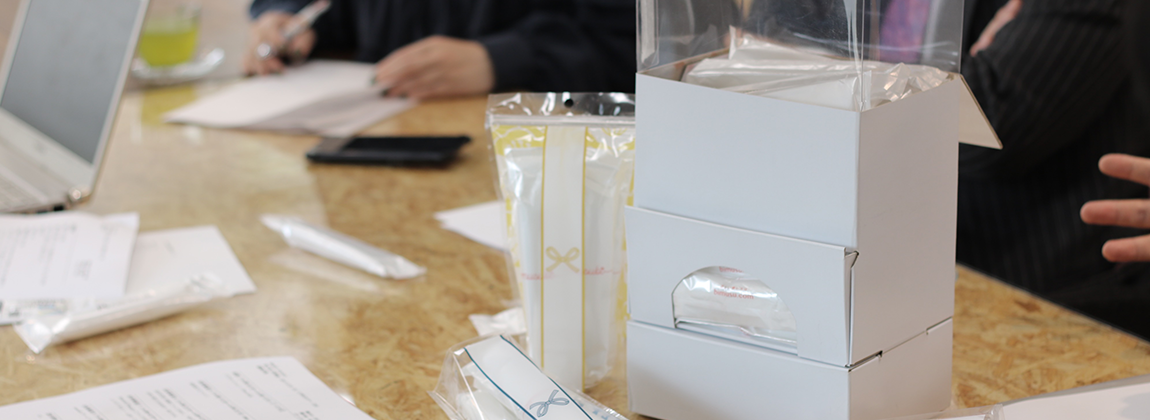
Things we want to spread through this movement.
1.Practicing gratitude
2.Clean and eco-friendly oshibori culture
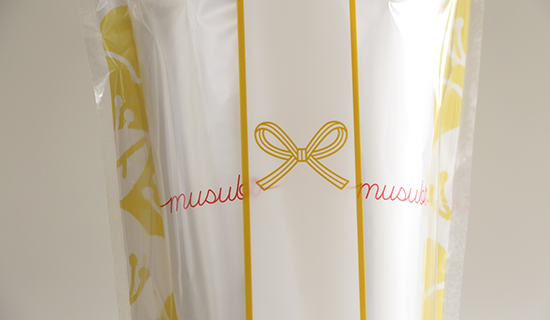
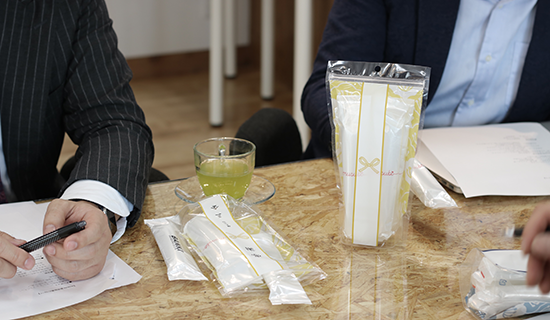
What we would like you to share
You have received musubi, which means someone is grateful to you. We would like you to not only make the best out of the gift but also share this experience with others and connect with them.
The word musubi means “connection” or “human bonding” in Japanese, and by spreading this idea, the world will become that.
How the future will look like when all oshibori in the world become "musubi".
Musubi has a small portion of oshibori market share, but we aim to change that.
Replacing regular disposable paper oshibori to musubi will mean we’re going to cherish limited resources by replacing an environmentally conscious product. It will give the whole new meaning to a hand towel and what it can do.
Keeping ours hands clean by oshibori on a daily basis will help prevent food poisoning and infectious diseases. Therefore it is beneficial to those who don’t have the custom of using oshibori as well. Especially beneficial to those areas where lack of water recourses is a big problem.

